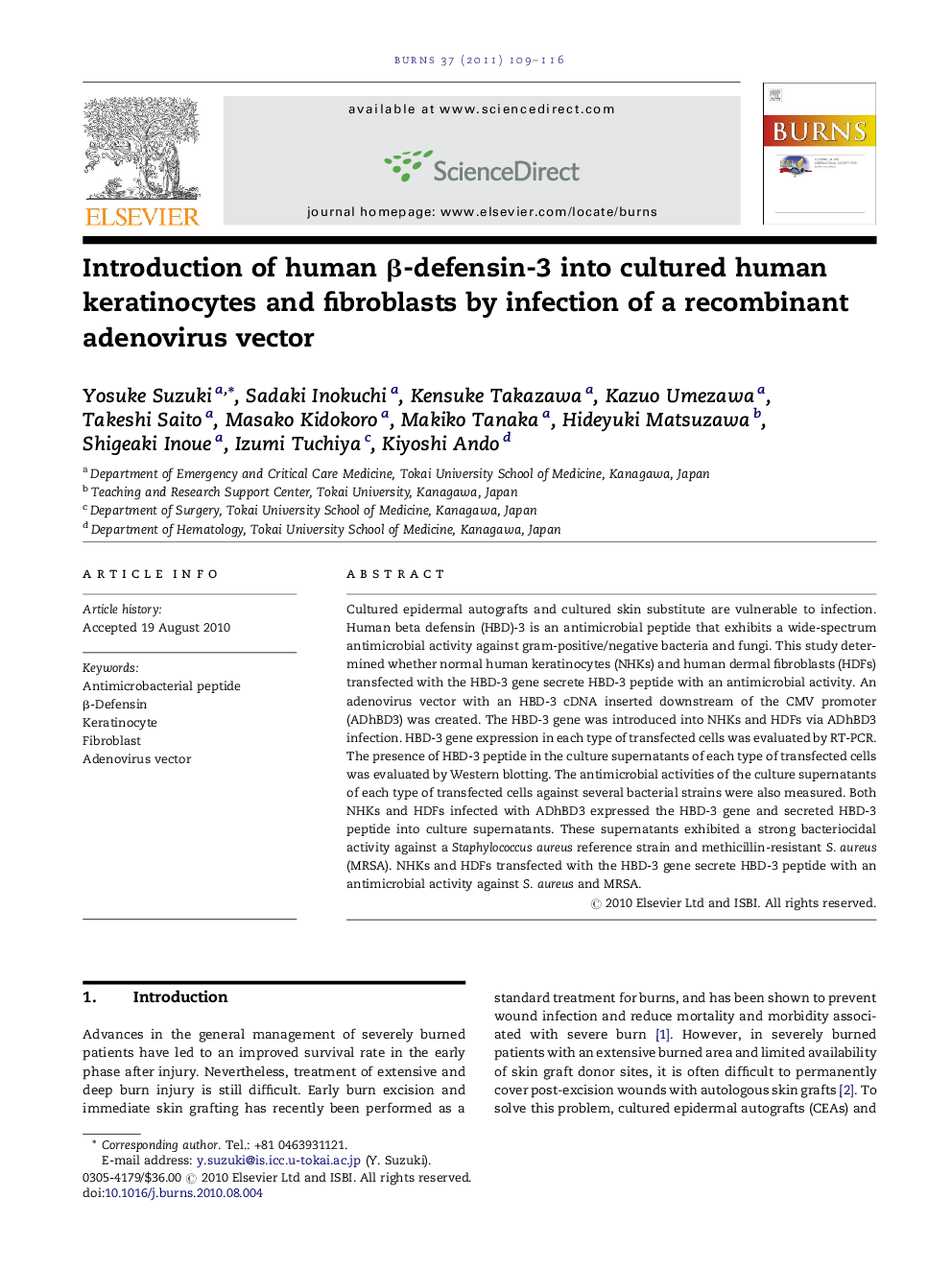| Article ID | Journal | Published Year | Pages | File Type |
|---|---|---|---|---|
| 3105023 | Burns | 2011 | 8 Pages |
Cultured epidermal autografts and cultured skin substitute are vulnerable to infection. Human beta defensin (HBD)-3 is an antimicrobial peptide that exhibits a wide-spectrum antimicrobial activity against gram-positive/negative bacteria and fungi. This study determined whether normal human keratinocytes (NHKs) and human dermal fibroblasts (HDFs) transfected with the HBD-3 gene secrete HBD-3 peptide with an antimicrobial activity. An adenovirus vector with an HBD-3 cDNA inserted downstream of the CMV promoter (ADhBD3) was created. The HBD-3 gene was introduced into NHKs and HDFs via ADhBD3 infection. HBD-3 gene expression in each type of transfected cells was evaluated by RT-PCR. The presence of HBD-3 peptide in the culture supernatants of each type of transfected cells was evaluated by Western blotting. The antimicrobial activities of the culture supernatants of each type of transfected cells against several bacterial strains were also measured. Both NHKs and HDFs infected with ADhBD3 expressed the HBD-3 gene and secreted HBD-3 peptide into culture supernatants. These supernatants exhibited a strong bacteriocidal activity against a Staphylococcus aureus reference strain and methicillin-resistant S. aureus (MRSA). NHKs and HDFs transfected with the HBD-3 gene secrete HBD-3 peptide with an antimicrobial activity against S. aureus and MRSA.
